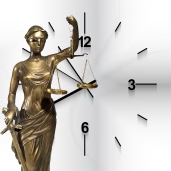Want to Settle Your Accident Claim? Should You?
A standard “lawyer answer” to most legal questions is “Well, it depends.” It’s an annoying answer, but it’s the correct one.
Many people involved in accidents that give rise to personal injury claims wonder if they should try to settle their case before hiring a lawyer. Will they personally recover more money by negotiating with the insurance company directly, thereby avoiding paying attorney’s fees and costs? Being a lawyer, I can’t give a straight and simple answer to this question. It’s not because I don’t want to. It’s because there are a lot of factors that affect whether your case can be reasonably settled without hiring a lawyer. So, instead of a simple (and therefore, wrong) answer, I’ll discuss the various issues that should affect your decision.
Factors Which Weigh Against Trying It Settling Without a Lawyer
If your case is relatively straightforward, and your medical bills are low because you had minimal or no injuries, you should be able to settle your case on your own. But! Calling and discussing your case with a lawyer shouldn’t cost you anything, so feel free to call multiple law offices to get an opinion on your case.
If your case is more complicated than one with very minor injuries, I would not suggest settling it on your own, or at the very least, until you discuss the case with an attorney.
Serious car accidents, medical malpractice, product liability cases, and cases against government agencies (for example, car accidents and slip & falls involving a governmental entity) usually require a lawyer’s experience. Not only do they involve complicated areas of the law, which can confuse even attorneys who don’t specialize in that area, but they usually have hidden dangers, such as shorter statutes of limitations, caps on damages, or procedural requirements (Governmental Tort Claim notice, or expert witness requirements) which must be satisfied in a short period to preserve your right to sue. Leave these types of cases to the lawyers, particularly lawyers well versed in those areas of the law.
Cases That Are Harder to Try to Settle on Your Own
As I mentioned above, Even if you don’t plan on hiring a lawyer, take advantage of talking with one for free. Sorry for the double negative sentence, but all personal injury law firms I’m aware of in Oklahoma City offer free consultations.
Assuming your case is more of a “run-of-the-mill” type personal injury claim, that doesn’t necessarily mean you should try to settle it yourself. Some factors that weigh against you trying to settle a case on your own:
The Defendant denies liability (fault) for the accident or alleges that you are also at fault.
Generally speaking, the case is much harder to settle if the defendant has a liability defense. This is especially true if the insurer thinks it has a chance of winning outright at trial (getting a defense verdict). This is true to a lesser extent in “comparative fault” cases, such as car accidents in which the defendant claims that you weren’t wearing your seat belt or slip & fall cases in which the defendant claims the hazard was an “open and obvious” condition. Lawyers have difficulty fairly settling cases involving disputed liability without filing a lawsuit. Expect at least as difficult, if not impossible, for you to do it on your own. If you attempt settlement negotiations and the insurer raises these issues, know it’s highly unlikely the insurance company will offer you a fair settlement.
There is more than one Defendant.
Cases involving multiple defendants, like a multi-car accident or a premises liability case that may involve not only the property owner but also an outside maintenance company and/or manufacturer (such as a case involving a faulty elevator), are examples. In cases involving multiple defendants with varying levels of liability, I’d suggest hiring a lawyer. They tend to be too complicated for a layperson to handle. A garden variety car accident case with multiple defendants will often require mediation to get multiple insurance companies to make an offer.
Your claim also involves a related worker’s compensation claim.
If you are injured by a third party (not a co-worker) while in the course and scope of your employment — say you get in a car accident while driving somewhere for work — you will have a worker’s compensation claim and a personal injury claim. These types of cases have numerous pitfalls that most people would have difficulty handling. The reimbursement of the worker’s compensation carrier and the fact that your worker’s compensation doctors will likely be biased against you (and therefore hurt your personal injury claim) are issues that are usually better left for a lawyer to navigate.
Other Factors to Consider When Deciding Whether to Settle on Your Own
While I consider the above-listed items to be “red flags” when it comes to trying to settle your case, there are some other factors that should be considered:
The amount of money that is at stake.
The value of your case will be influenced not only by the extent of your injuries but also by the amount of available insurance coverage. Generally speaking, the more money at stake, the more likely you’d be better served by having a lawyer. An exception to this rule is the unfortunate circumstance in which the value of your injuries exceeds the amount of insurance coverage available. If you’ve got $40,000.00 in medical bills from a “clear liability” accident and only $25,000.00 in insurance coverage, hiring a lawyer may not increase your recovery. However, a law firm should be able to get your medical bills reduced if you are unsuccessful in handling the bill reductions.
Your level of comfort in tackling settlement negotiations.
Some people don’t like negotiating. My wife sent me to the car dealership when she wanted a new minivan. She had zero interest in negotiating with the car salespeople. I made sure my phone was charged ahead of time, but I enjoyed staying there until after closing time to “get the math to work.”
If you think you’re bad at negotiating, do not want to handle it, or would rather not deal with the headache, hire a lawyer. I often tell people, “Your priority is getting your health back and communicating with your doctor – let me worry about the insurance companies.”
Don’t try to be something you’re not just to save a few bucks or impress a loved one who may be pressuring you to handle the case yourself. Yes, you can screw up so badly in your settlement attempt that no lawyer will want your case afterward (you shouldn’t screw up this badly, you know what they say about free advice). You should only try to settle your case if you truly feel comfortable about it.
Settlement negotiations in a personal injury case are not the same as negotiations over the price of a used car. It is a more drawn-out process that involves skill in determining how much you should move with each offer and in arguing (without being argumentative or confrontational) the merits of your case. I’m not saying you need to be a genius who was captain of your high school debate team (most lawyers are neither). Still, you need solid communication skills and confidence in your negotiating ability.
Another simple advice is if you are negotiating your claim, getting mad at the insurance adjuster will not help your case. Know that the insurance adjuster isn’t taking your claim personally. They don’t care what you went through, but at the same time, the adjuster would prefer to get the file out of their hands. Also, it depends on the insurance company, but most companies have more experienced adjusters who handle cases after a lawsuit has been filed on a claim. It’s not always the case, but most of the time, filing a lawsuit will increase the insurance company’s settlement offer.
Would Hiring a Lawyer Result in a Larger Settlement?
In most personal injury cases where the defendant is properly insured, having a lawyer will be able to get a larger settlement. The biggest reason for this is the insurer expects the lawyer to immediately file a lawsuit if he or she can’t settle the case through pre-suit negotiations. If an adjuster is negotiating with someone who does not have an attorney, what happens if the claim doesn’t get settled? Nothing.
Aside from their experience in handling settlements, the imminent threat of a lawsuit gives attorneys a distinct advantage over non-lawyers. Insurance studies show the payouts can be as much as three times higher when an attorney is involved.
That being said, your goal in settling your accident case is not to meet or exceed the gross settlement amount an attorney would get. You are only concerned with the net settlement amount you receive (the money that goes directly into your pocket). You need only to achieve a gross settlement of more than 66% (the typical pre-lawsuit attorney fee being a 1/3 fee) of what a lawyer would have gotten you to achieve a higher net settlement amount.
For example, if a lawyer could settle your case for $20,000.00, you need to settle for more than $13,333.33 to personally get more money by settling on your own. That’s a pretty big incentive to try to settle on your own. That’s assuming the attorney you hire charges a 1/3 contingency fee. But, the math also gets better for the client if the attorney successfully negotiates a higher settlement and reduces the medical bills.
Want to Settle Your Accident Claim? Prep Work
Assuming you’ve read everything above and decided that you still want to try to settle your accident claim, here are some suggestions for how to proceed. Remember that your attempt to settle may fail, and you may have to hire a lawyer to sue the defendant. Therefore, you want to be sure that you don’t do anything that may damage your case to such an extent that no lawyer will want to take it after your settlement attempt.
Settling Your Accident Case — Before You Start, Know Your “Limitations”
The first thing you should do to try to settle your accident case is find out the statute of limitations (the date by which you must file a lawsuit) for your claim. In general, the statute of limitations in Oklahoma is two years from the date of the injury. But, this varies if a governmental entity is involved.
While it may seem like the statute of limitations for your claim gives you plenty of time to negotiate a settlement, you must remember that you’ll need to leave a certain period left, in case your negotiations go badly, to allow you to hire a lawyer. You’ll have a much easier time finding a lawyer if your case has a year left on its statute of limitations than if it only has a few days. The attorney will need time to get your case file together and get the proper defendant(s) served.
Settling Your Accident Case — Do Not Jump the Gun
While I realize that one of the reasons you want to try to settle your case is to possibly get your money faster than you would if you hired a lawyer, do not try to settle your case before it is ready. Do not make any settlement offers before you have finished treating or reached MMI. The insurance company will not do “partial settlements” on your injury claim.
Once you sign that settlement release, you can’t ask for more money later. This will require a great deal of patience on your part, as it may require you to wait upwards of a year (or more) before you try to settle, but it is necessary to ensure you are fully compensated.
If you don’t wait until you are through with your medical treatment, you cannot reasonably calculate how much your case is worth. It is common for medical treatment not to go as planned. People recover with physical therapy at different rates; sometimes, it takes a while for the doctor to diagnose something requiring surgery. Most doctors will start with conservative therapy unless there is something like a broken bone. Before making a settlement offer, you want to know that all possible medical complications are behind you. If you don’t, you risk settling for far less than your case is worth – and, worse, with future medical bills to pay that should have been covered by the defendant’s insurance company.
Contacting the Defendant’s Insurer Before You’re Ready to Talk Settlement
It is very likely that if you don’t contact the defendant’s insurer shortly after the accident, it will contact you. The adjuster will likely be pushy and eager to learn about your claim and start trading settlement offers. Until you’re ready to make an offer, which will most likely be many months after the accident (it depends on your injuries, your doctors, and when you recover), politely decline to discuss the case or talk settlement.
Do not give a recorded statement. Do not give the insurer a release to get your medical records or wage information.
Let the adjuster know that you will make a settlement demand and provide all relevant documentation only after you have recovered from the injury. Exception: If you have a car accident case with a UM claim, you must give a statement and provide the requested documentation to your UM insurer (and only your UM insurer, not the other driver’s liability insurer). Under your policy, your insurance company has a duty to deal fairly with you.
The only thing you want from the adjuster at this point is the defendant’s claim number and policy limit information. You want this in writing, in the form of the “declarations sheet” (a/k/a “dec sheet”) for the policy. Some states require the insurer to give you this by law; others, like Oklahoma, do not. For those that do not, the insurer will sometimes provide this information anyway to try to settle the case. If you’re in a state that doesn’t require liability policy limit disclosure and the insurer won’t provide the information, you can still try to settle your case, but it will be harder. You may want to hire a lawyer if that happens.
Oklahoma does not require the policy limits information until a lawsuit has been filed.
Things You Should Gather Before You Make Your First Settlement Offer
Your first settlement offer should be in writing as a demand letter. It should be accompanied by all of the documentation that supports your claim. This includes your medical records and medical bills from all relevant medical providers. If you have documentation to support a wage loss claim, such as pay stubs from before the accident and anything showing that you missed work afterward, that should be included with your demand. If it’s an automobile accident, you need to get a copy of the Traffic Collision Report, which should also be included. If there were witnesses to your accident, see if you can obtain written witness statements and their contact information.
For your benefit (not necessarily to include with your demand letter), you should request subrogation information from your health insurer if you used health insurance to pay for your accident-related treatment. This is an itemized listing of your insurer’s payments for accident-related medical treatment. You need this to know how much you’ll have to pay back to your health insurer to settle your accident claim. You can get this information by calling your health insurer’s subrogation department.
You should also list your out-of-pocket medical expenses, such as co-pays, over-the-counter medications, orthopedic braces, hot/cold packs, crutches, bandages, etc. You should gather your receipts for these items, even though I don’t suggest including them with your demand letter. This is more for your personal use in preparing the demand or if the insurer requests that you support your claimed expenses (usually, these are a drop in the bucket compared with your other medical costs, so it’s not an issue).
If you have any photographs relevant to the accident or your injuries, such as pictures of your damaged automobile or any visible injuries to your body, make copies of these to include with your demand. If your case was a slip and fall, you can take pictures of the shoes you were wearing (assuming they are sensible and help your case) at the time of the accident. If the slip involved a liquid on your clothing, any photos showing the wet clothing are helpful. If you fall due to a hidden hazard, such as uneven pavement, that will show up on a photograph, take pictures of that.






